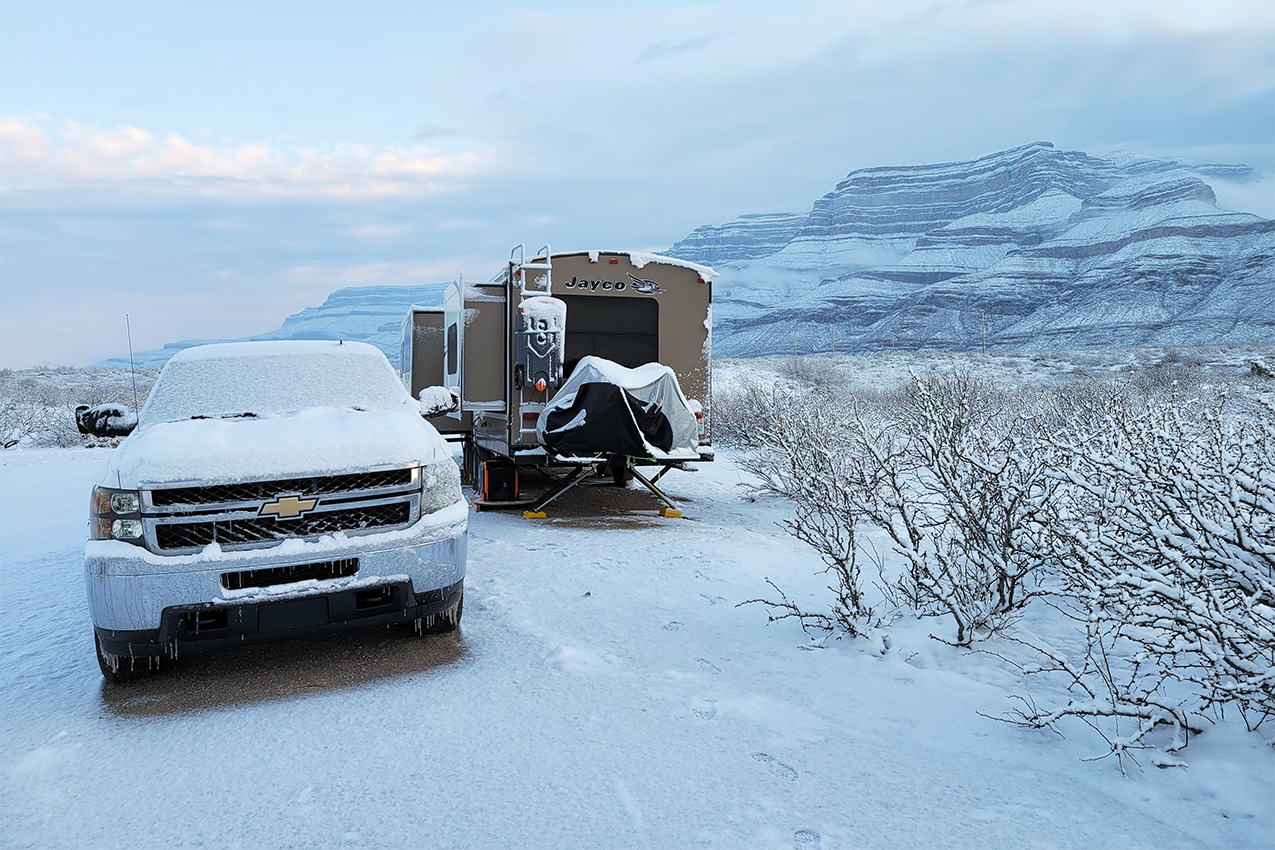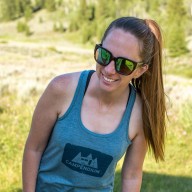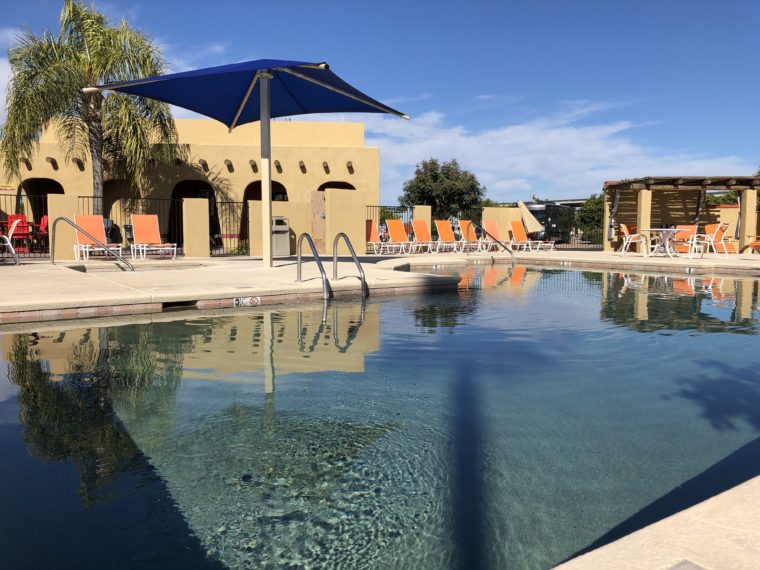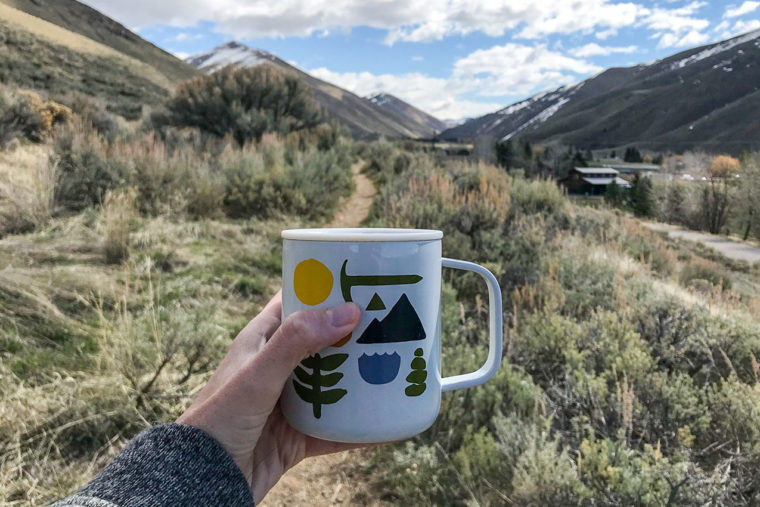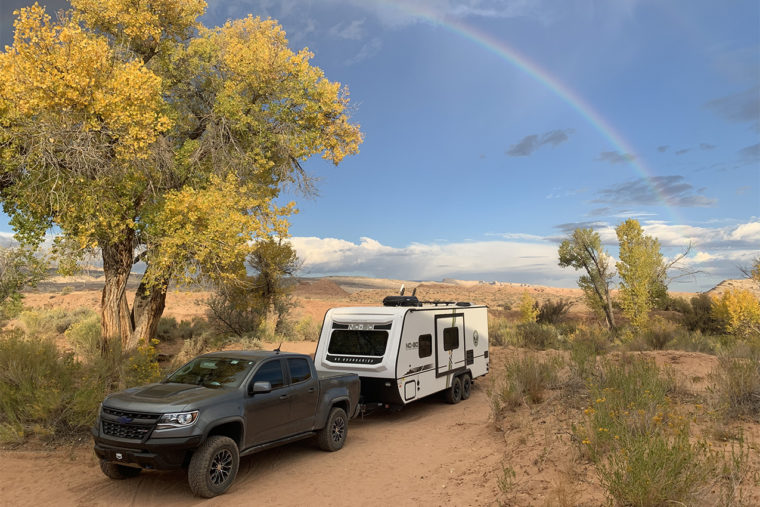Are you an RVer who stores your camper away at the end of the summer with a hint of regret? Why not try winter camping this year? Winter camping takes a bit of planning and preparation, but in many areas, your efforts will be rewarded with uncrowded campgrounds, empty trails, and the experience of camping in the quietest season of the year.
Winter RV Camping Tips
For some, winter camping is heading to a destination with relatively warm daytime temperatures that dip below freezing at night. For others, it’s sleeping in a ski resort parking lot or setting up their camper for an extended period in one snowbound location.
How to prepare for a winter RV camping experience depends on what type of camping you plan to do and what kind of camper you have. If you plan to camp all winter in cold temperatures, investing in a four-season camper—or making extensive modifications to your existing camper—is a must. But even without a four-season camper, most travelers can handle a few nights of freezing in stride.
If you plan to stay for the whole season in one spot, check out Campendium’s guide to getting your rig winter-ready and decide if RV insulation is worth the cost.
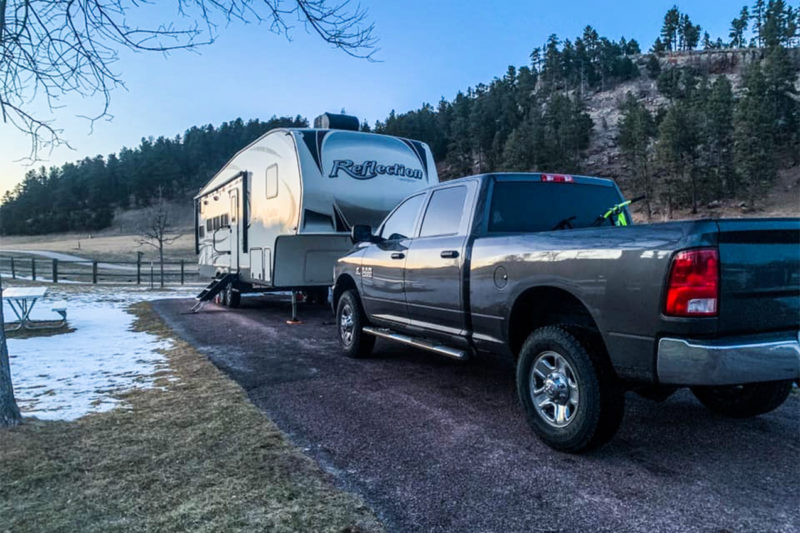
Do Your Research
Before you head to a destination, take a look at the long-term weather forecast. Keep a particularly close eye on the overnight lows. Temperatures that hover above freezing will make for a chilly night, but with some extra layers and a working furnace, you can camp comfortably.
When the forecast dips below 32 degrees Fahrenheit, and particularly if it looks like you’ll be in freezing temperatures for more than a night or two, you’ll want to add a few items to your packing list, care for your pipes, and carefully plan your travel routes.
What to Pack for a Winter Camping Trip
For a more comfortable camping experience in colder weather, consider adding these items to your packing list:
- Insulated jacket
- Long underwear top and bottom
- Winter hat and gloves
- Warm socks and slippers
- Extra blankets for the bed
- Collapsible snow shovel
- Indoor/outdoor thermometer
- Spare batteries for your flashlight or headlamp
- Full water jugs and/or a full fresh water tank—many year-round campgrounds in cold climates turn off their water in the winter
For more ideas about staying warm when the nights are cold, check out these tips for camping in fall.
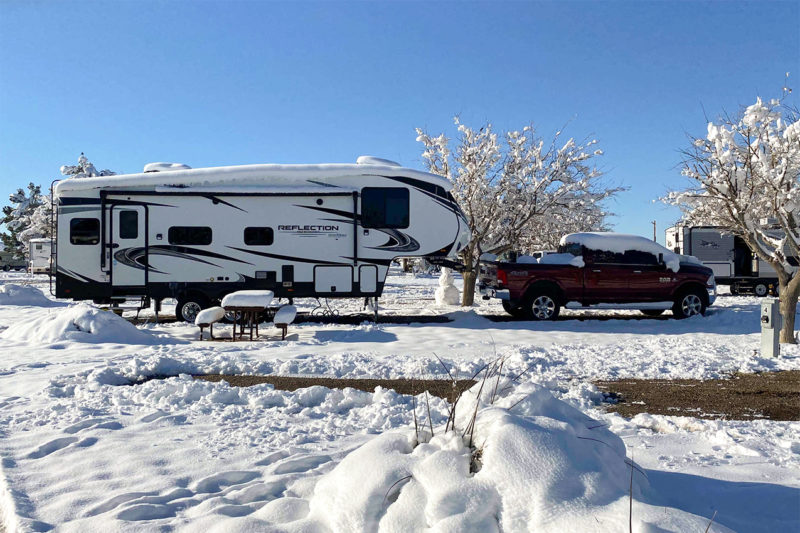
Take Care of Your Pipes
If overnight temperatures drop below freezing, you should pay careful attention to your RV’s pipes. When the temperature hits freezing, there’s a chance that the water in your pipes could freeze, wreaking havoc on your plumbing.
Here are some ways to try to prevent your pipes from freezing:
- If you’re running a furnace, keep any cabinets with plumbing in them open to allow warm air to circulate.
- Unhook the city water connection and run your faucets until no water comes out (do not do this if you’re pulling from a fresh water tank—your water pump should never pump until dry). Keep taps open overnight to give any remaining water room to expand.
If you travel to destinations that’ll be consistently cold, at or below freezing, and you don’t have a four-season camper, consider winterizing your pipes and not using your plumbing. Instead, use water jugs to wash your dishes, hands, etc. into an easy-to-empty plastic tub, and use the campgrounds’ bathhouses for showering and bathroom use.
If you run your furnace, remember to test your carbon monoxide and smoke detector regularly, and crack a roof vent whenever the heat is on to decrease condensation and circulate air.
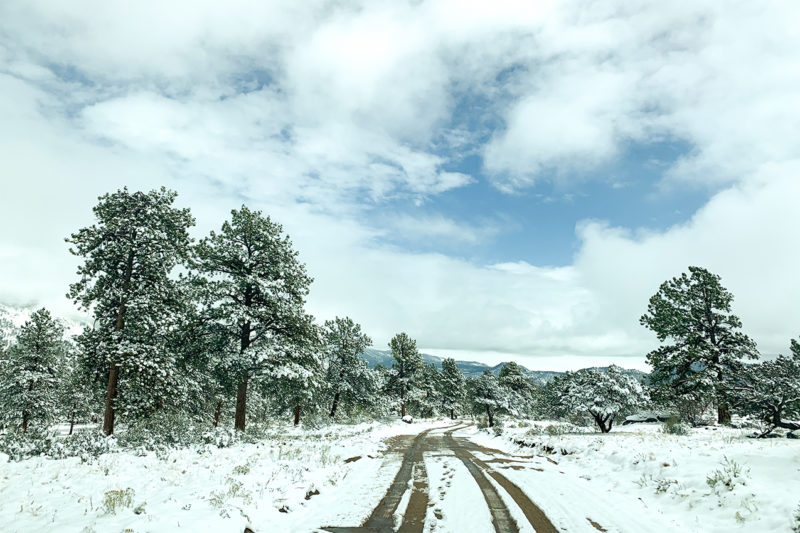
Winter Travel Considerations
Where there are winter temperatures, there is often snow, sleet, and ice. Be realistic about your comfort level driving your camper in these types of conditions. If you aren’t an experienced driver in the snow, it’s best to wait for clear, dry roads before you decide to move from one campground to the next. Even if you’re comfortable driving in winter weather, carefully weigh the conditions against the risk of driving, especially if you’re towing or in a large motorhome—they’re much harder to control in adverse weather than a passenger vehicle.
Always be sure to carry an ice scraper, snow brush, snow shovel, and road flares or reflective triangles, in addition to your emergency vehicle kit.
If the weather at your destination looks iffy, consider another option. Track any storms using radar maps on a weather app and pick a new destination that won’t be impacted. Stay flexible and keep your safety top of mind.
Boondocking in the winter, especially on dirt roads, isn’t recommended. Stick to established campgrounds. If you’re camped on a dirt road and a storm hits it could be days, weeks, or even months until the road becomes safe to travel again.
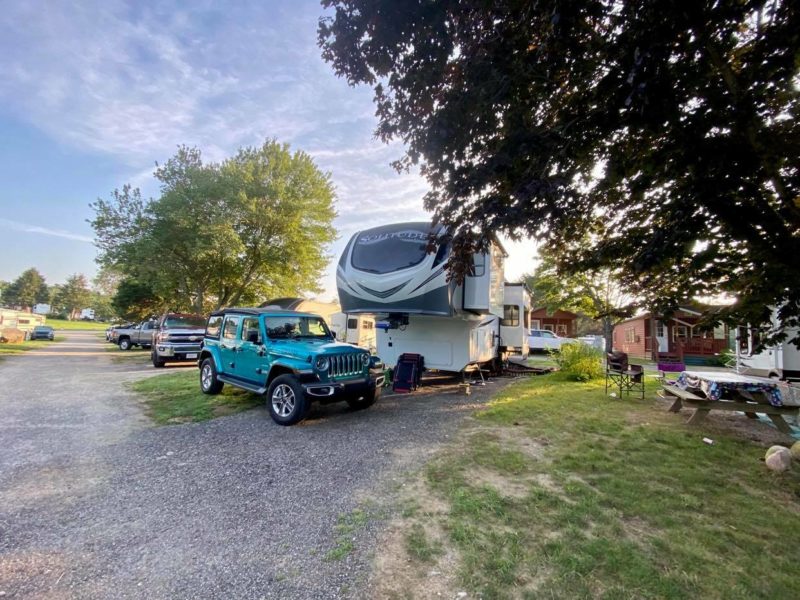
Where to RV Camp in Winter
Ready to try out winter camping? Here are some top-rated year-round campgrounds to explore this winter.
Winter Camping in the Northeast
Though you might not think of the Northeast as a prime winter camping destination, there are a number of campgrounds open year-round for those who are willing to brave this region’s chilly temperatures.
Winter Camping in the Midwest
The welcoming vibe of the Midwest extends beyond the warmer months, with many campgrounds offering year-round overnight stays to campers willing to brave the cold. The majority of this region experiences winter temperatures, so follow the tips above for cold-weather camping.
Winter Camping in the West
The western U.S. offers warm-weather winter destinations as well as densely cold, snow-covered locales. Choose your own adventure in this sprawling region, but make sure that your camping setup matches the weather forecast—even in the Southwest, winter temperatures can dip below freezing.
Winter Camping in the South
Whether you visit the winter haven of Florida or the arid beauty of western Texas, the South is a favorite destination for winter camping. Expect warm temperatures and plenty of company if you head to this more temperate zone during the winter months.
With a bit of preparation and an adventurous spirit, your camping season doesn’t have to end when summer does. No matter where you point your tires, get out and enjoy the open road this winter.
This article has links to products that were carefully selected by our editors. We may earn commission on your purchases from these links.
